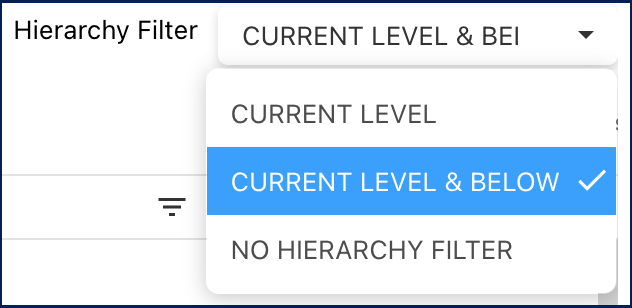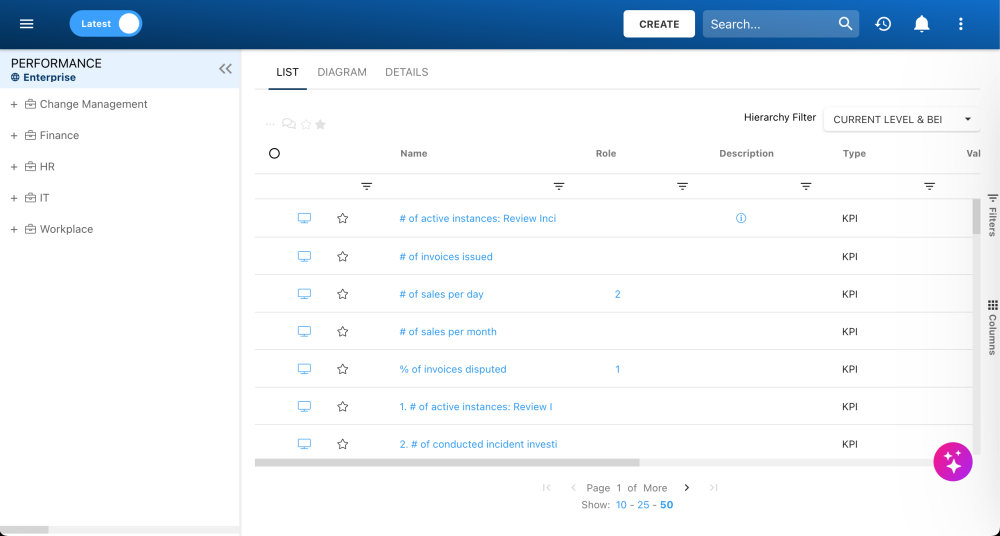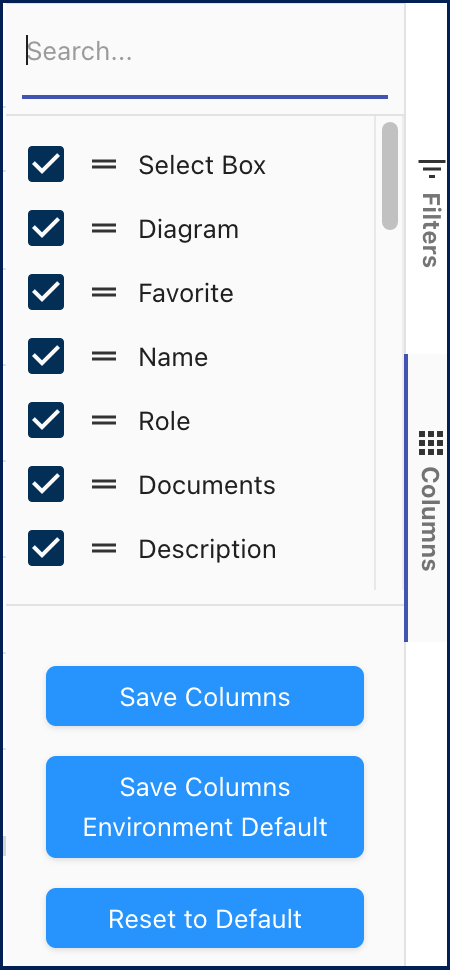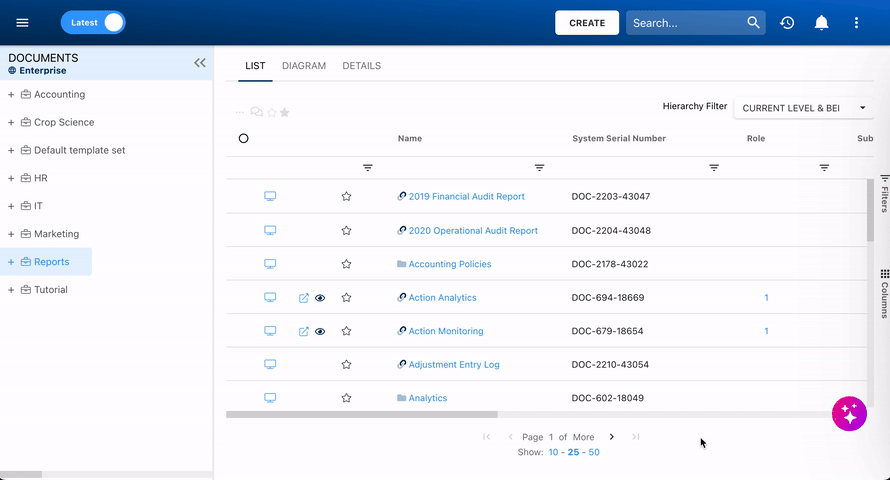List view allows you to see all performance data (objectives, KPIs, KCIs, and KRIs) that you have access to. Viewing performance data in a list format gives users a quick overview of key performance indicators and control metrics, facilitating navigation and decision-making.
The List view provides a variety of Filtering and Sorting options, enabling users to easily find specific sets, objectives, KPIs, KCIs, or KRIs. These features help organize and optimize the performance data presented in the List View.
How to Navigate to the List View
- Click on the Module Explorer button in the top left of your screen.

- Click on the desired module, in this case, the Performance module.

- You will be directed to List View, where sets, objectives, KPIs, KCIs, and KRIs will be displayed.
Hierarchy Filter
EPC provides users with three major hierarchy filtering settings in the Performance module:

- No hierarchy filter: A list view where all objectives, KPIs, KCIs, and KRIs within the module are listed.
- Current level & below: A list view where all levels below the selected performance item are listed.
- Current level: A list view where only the first level below the selected performance item is listed.
Columns
The List view includes various data columns that users can add or remove according to their needs, providing flexibility in visualizing and filtering performance metrics.
- To add or remove columns, click the ‘Columns’ button on the right side. You will find a list of available columns with checkboxes to select or deselect the desired information.
- You can save your list column preferences by clicking on the ‘Save Columns’ button. This configuration will be your default display when accessing the List view.
Filter by Duplicates
The Name column includes a filter for identifying duplicate objects, simplifying the management of duplicate data.
To filter for duplicates:
- Click the filter button (
) in the Name column.
- Check the Duplicate box. This will filter the list to show only performance metrics that have the same exact name.
Available Columns
The List View offers a range of data columns, allowing for detailed management. Below is a description of the available columns:
| Columns | Description |
|---|---|
| Favorite | Allows users to sort processes by favorites vs. non-favorites |
| Name | Textual search for any existing name of an object. In this column, you can also filter for duplicate objects. |
| System Serial Number (SSN) | Textual search for existing item’s SSN |
| Role | Whether or not there are Roles directly associated with the item in question |
| Documents | Whether or not there are Documents directly associated with the item in question |
| Subtype | Whether or not if this object is classified as a business type |
| Categories | Whether or not there are Categories directly associated with the item in question |
| Identifier | Textual search for any existing unique identifier of an object |
| Description | Whether or not there is a Description inputted for the item in question |
| Type | The type of the object |
| Value | The latest value inputted for the measure |
| Unit | The unit that the performance measure is being measured in |
| Color | The corresponding color representing the current performance ( Green – Above Expectations, Yellow – Acceptable, Red – Below Expectations) |
| My RASCI-VS | The RASCI-VS associations existing on the item in question |
| Last Modified By | The name of the last resource that modified the object |
| Modified Date | The last date that the object in question was modified |
| Status | The current status of the collaboration engagement (Open, Work in Progress, Closed, Rejected) |
| Control | Whether or not there are Controls directly associated with the item in question |
| Risk | Whether or not there are Risks directly associated with the item in question |
| Locked | Whether the item in question is currently locked or not |
| Purge period | Textual search for an existing item’s customized purge period |
Need more help with this?
Visit the Support Portal





